#Trade
Brexit Complications Reportedly Delay Next Mini
BMW Group has delayed the development of a next-generation Mini Cooper, citing a need to reduce cost and comfortably navigate Britain’s trade relations with the European Union after Brexit.
Considering Europe has had since June of 2016 (when the referendum took place) to figure all this out, it feels silly that the region is still in a panic. Yet that’s reality in which we live. Despite the United Kingdom voting to withdraw from the European Union years ago, the decision received an immense amount of pushback. Negotiations stalled, arrangements went unmade, and the UK eventually voted in a gaggle of Conservatives in the last election — giving them a strong majority in Parliament.
That new political makeup, which includes Prime Minister Boris Johnson, meant Brexit could finally happen. But it doesn’t undo the wasted years that failed to produce a comprehensive trade deal between the UK and EU, or the resulting complications.
House Passes USMCA Trade Deal, Replacing NAFTA
The House of Representatives approved a new North American trade deal on Thursday, causing many to breathe a sigh of relief. The House vote sends the measure to the Senate, with the probable outcome of it being pushed through.
When is another matter, however, as Senate Republican leader Mitch McConnell said the measure would likely be taken up after an impeachment trial. That means we’ll be waiting until 2020. Still, the U.S. Mexico Canada Agreement (USMCA) is one step closer to replacing the North American Free Trade Agreement (NAFTA). Barring a governmental curveball, the automotive industry now knows what to expect.
Vehicle Content Rules Still Slowing North American Trade Deal
Replacing the North American Free Trade Agreement (NAFTA) has proven difficult for the Trump administration. Trade negotiations have progressed slowly, with Mexico, Canada, and the United States rarely seeing eye-to-eye on most issues. Some of the biggest problems have dealt with content requirements.
The latest hangup stems from a rule requiring 70 percent of the steel and aluminum found in North American vehicles to come from the same continent in order to ensure a duty-free existence. Mexico isn’t keen on the proposal — as it sources a large amount of metal from Brazil, Japan and Germany. Meanwhile, the United States is attempting to use the inclusion to appease the United Steelworkers union and keep labor-focused jobs in the country.
Trade War Watch: Report Claims White House Wants to Dictate Where Cars Are Manufactured
The Trump administration has reportedly expressed an interest in deciding where and how automotive manufacturers do their business if they want to secure duty-free deals under the United States–Mexico–Canada Agreement (USMCA) that’s positioned to replace NAFTA. According to Bloomberg, there’s currently a discussion taking place between administration officials, congressional staff, and domestic and foreign automakers regarding the context of the legislation that lawmakers will ultimately have to vote on. The White House is said to want highly specific language that would allow it to select production rules unilaterally.
Considering how messy things have gotten with China, it could be useful to have extremely clear trade language and some direct oversight of businesses with global interests. But critics are worried the strategy could bring U.S. trade policy closer to the rigid policies already in place in the People’s Republic — a country America has attempted to distance itself from due to its ludicrous levels of government intervention.
The real fear is that the government could use this to give one manufacturer better treatment than another — cutting it a sweet deal for building in a politically advantageous area, for example. While plausible, we can’t confirm something that’s largely speculative.
No New Auto Tariffs For Japan, Probably
The United States and Japan have signed a limited trade deal that’s been simmering for some months now. President Donald Trump has been eager to secure a place where American farmers can send their goods now that the trade war with China has diminished American dealings with that market. In return, Japan wanted assurances from the U.S. that it will not impose any new automotive tariffs, as cars remain one of its chief exports.
While the island nation didn’t get the guarantee in writing, Prime Minister Shinzo Abe claims he received a verbal promise. This is to be the first part of a broader trade deal between the two countries.
Car Talk: GM's Barra to Sit Down With Trump Thursday
General Motors CEO will meet with U.S. President Donald Trump and White House officials on Thursday to discuss the state of the automotive industry, trade issues, and the fuel economy rollback. We imagine it’ll go much differently than their first meeting in Washington.
Perpetually concerned with economic threats arising from China, Trump has come down hard on automakers in the past. These days, his favorite punching bag happens to be GM. The automaker’s strong presence in China has forced it to make commitments there. On this side of the Pacific, the automaker has shuttered production facilities in Michigan, Ohio, and Maryland while continuing to manufacture vehicles in Mexico — something the UAW has been exceptionally critical of going into contract negotiations.
At Least for Cars, Preliminary U.S.-Japan Trade Deal Keeps the Status Quo
There’s good news if you’re a U.S. farmer, however. A preliminary deal reached between the two countries this week would keep existing auto tariffs in place, though President Donald Trump claims there’s still the possibility of a hike.
It was the threat of import tariffs that brought Japan to the table following the U.S.’s 2017 pullout of the Trans-Pacific Partnership, and the agreement in principle announced this week keeps new tariffs off the table, though auto groups continue demanding action on an issue Lee Iacocca used to rail about: reciprocity.
Japan Eyeballs Minor Trade Deal With U.S. Slated for September
The United States and Japan are working on a trade deal revolving around agriculture and automobiles. As much as you’re probably dying to hear about the farming aspects, we’re going to focus a bit more on the latter. Boiled down, the arrangement is reported to deliver preferential treatment for U.S. farmers hoping to expand into the Japanese market while lessing duties on Japanese auto parts.
President Donald Trump has noted in the past that he’s displeased with any country holding a trade surplus over America’s head and Japan has one. Last year, it amounted to $67.6 billion in goods — most of it relating directly to automobiles. This initially encouraged the president to threaten tariffs on Japanese imports. However, Japan’s close ties to the United States bought it some time and any legitimate danger has been postponed to encourage trade discussions.
Can't Get No Tariff Relief: Tesla, GM, Nissan, FCA, Uber Appeals Denied
Large U.S. companies hoping to side-step the 25 percent tariff on Chinese goods by appealing to the government aren’t having much luck. Since July, the U.S. has imposed the tariff on billions of dollars worth of goods from the People’s Republic, leading to financial fallout for automakers heavily invested in the region.
And it seems no one complained more than General Motors. Tesla, Nissan, Fiat Chrysler, and Uber also sent in official gripes in the hopes of receiving an exemption, only to have the door hit them on the way out.
It's Monday, and Mexican Tariffs Are Back On the Table
After the United States and Mexico signed an agreement to stem the flow of illegal migrants from Central America across their shared border, President Donald Trump’s latest tariff proposal was taken off the table. You could almost hear the sphincters of every global automaker collectively unclench in that moment. Unfortunately, their rectal vacation appears to have been short lived.
“We have fully signed and documented another very important part of the Immigration and Security deal with Mexico, one that the U.S. has been asking about getting for many years. It will be revealed in the not too distant future and will need a vote by Mexico’s legislative body,” Trump tweeted on Monday. “We do not anticipate a problem with the vote but, if for any reason the approval is not forthcoming, tariffs will be reinstated!”
Mexican Tariffs Off the Table Following Border Deal
The United States maintained the threat of tariffs on Mexican goods until Friday night, less than three days before a 5 percent levy was poised to hit incoming products from south of the border. It seems the pressure worked, with the U.S. and Mexico signing a deal late Friday to prevent both tariffs and the northward flow of illegal migrants from Central America.
Automakers are no doubt breathing a sigh of relief.
As Mexico Beefs Up Its Border, Tariffs Still Lurk on Monday
Friday brought a third day of talks aimed at preventing a U.S.-imposed tariff on Mexican goods. Late last month, the White House warned that a 5 percent import levy would hit Mexican goods on June 10th, rising to 10 percent by July and 25 percent by October, if Mexico doesn’t stem the flow of illegal migrants travelling through its country to reach the U.S.
Going into the weekend, the threat still stands. There are, however, signs of progress both from the U.S. and its southern neighbor.
General Motors Says Not To Worry, It'll Make Money With Electric Cars
There are a number of things holding up the electric revolution, but one of the biggest obstacles is the high sticker price of battery-powered vehicles compared to internal combustion rivals. General Motors recognizes this wants to reassure potential customers that this won’t be the case forever. On Wednesday, GM President Mark Reuss told the UBS Global Industrials and Transportation Conference that his company will deliver “very average transaction prices” for battery driven vehicles sooner than anticipated.
Many analysts fingered 2025 as the first year we could realistically expect electric cars to fall in line with their ICE counterparts in terms of price. But those earlier predictions are now under fire from world events — notably, uncertainty surrounding the world’s ability to mine the necessary materials at scale, plus a trade war involving one of the world’s largest battery producers.
U.S. to GM: Sorry, Pay Your Buick Envision Tax
Pity the poor Buick Envision. As one of the few Chinese-built vehicles sold in America, it earned an unpatriotic stigma upon its arrival. There’s no word on how many UAW workers own one. Meanwhile, the compact crossover launched partway through the 2016 model year with only high-end trims in tow, saddling it with a steep starting price. The entry price has since declined to saner levels.
Just when Buick thought it had righted the Envision ship, the U.S. hiked tariffs on a slew of Chinese goods to 25 percent last July, suddenly making the Envision a less profitable endeavor for the doctor’s car brand. As we learned today, General Motors’ appeal for mercy apparently fell on deaf ears.
Automakers, Already Taking a Hit From Trump's Mexican Tariff Threat, Worry the Pain Has Only Just Begun
The profit-focused appeal of building vehicles in low-cost jurisdictions propelled many automakers to boost manufacturing capacity in America’s southern neighbor — a decision that now haunts them.
After President Donald Trump issued a Thursday statement declaring his administration would levy a 5 percent tariff on all Mexican-made goods starting June 10th, some $17 billion in market value evaporated from top automakers the following day. Ford, General Motors, and Fiat Chrysler all saw their share prices tumble. Should Trump follow through on his promise of an escalating tariff (a threat designed to stem illegal migration into the U.S.), the pain felt by both companies and their customers will be extreme.
Naturally, the industry is pushing back the best it can.



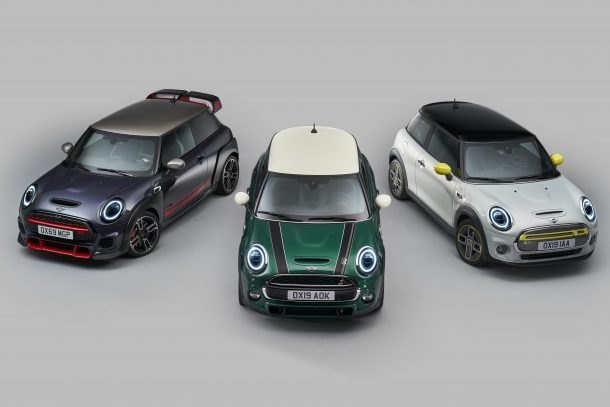


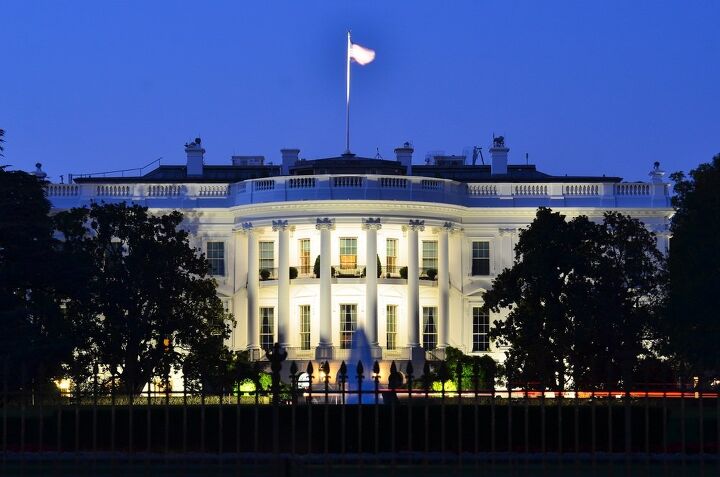

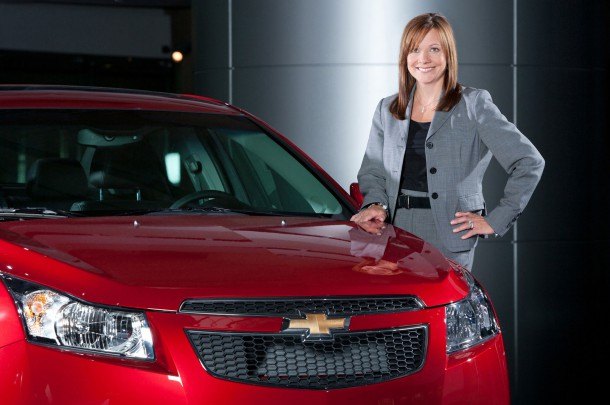


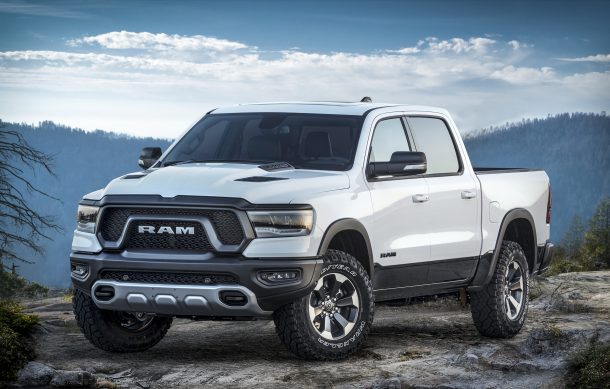
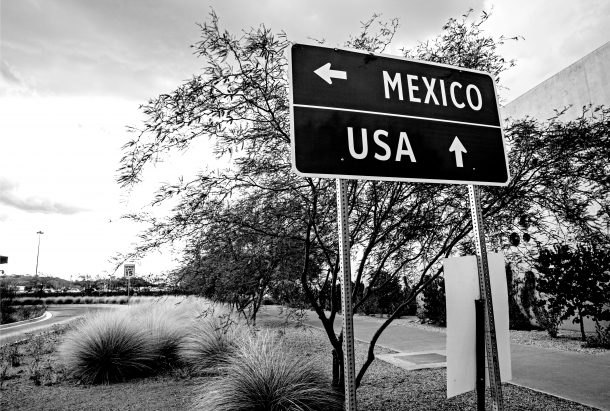


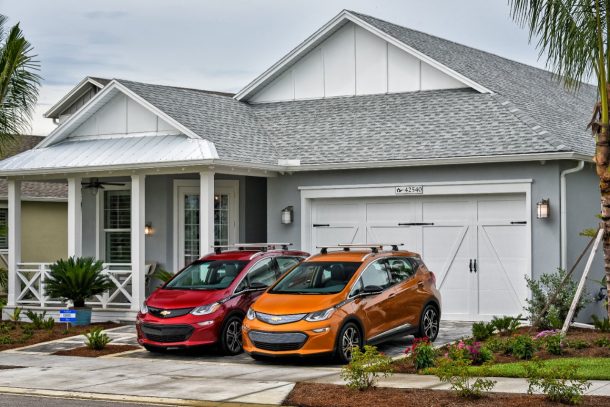
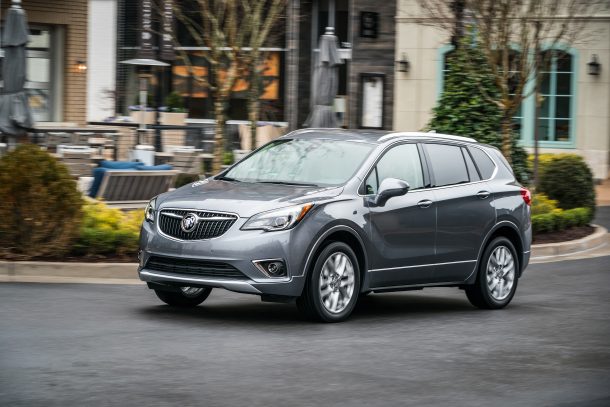
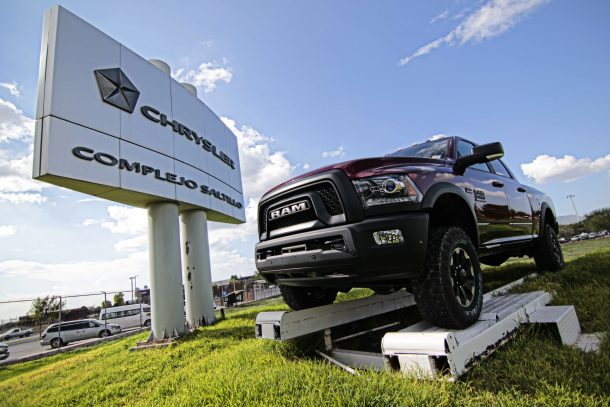












Recent Comments